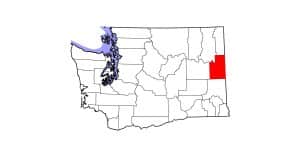Poll: Equine Referral Hospitals
Tell us more about your answer in the comments below! Users must be logged in to their free account on TheHorse.com to comment.
Related Content:
Share
More from The Horse
Stay on top of the most recent Horse Health news with










7 Responses
Our regular vet is the Virginia Tech Field Services Veterinarians. They treat our horses routinely at our farm. I have 8 Rockies, One was in for Potomac Fever, one was in for EPM, one for colic and we lost her, one was in for eye removal, another was in for AI which was successful. This has been over the course of 15 years.
We had a large pony with eye issues. The only close equine opthamologist was at a university. My local vet recommended we go and the diagnosis helped with this animals rehab. Turned out he had juvenile cataracts (as well as large eyes that saw everything to well). He was super sensitive as well. The short version is once we understood his problem it made it easier to work with him. He became an outstanding competitor and a fun guy to ride. He was 7 or 8 at that time but lived to be 33.
Temporohyoid Osteoarthropathy surgery. My 31 year old Morgan had certohyoidectomy to relieve facial paralysis and pain. Mare is 32 now, 8 months after surgery and doing great. Acts like she’s 10 years old now that the pain is relieved. Before surgery pain level was so high she was a possible candidate for euthanasia. Now she has many more years of a happy life ahead of her.
3rd degree heart block & implanting of pacemaker. My Arabian mare was almost 17 at the time of diagnosis. She’s now 31 1/4 years old and on her second pacemaker.
Took a horse to Texas A&M University for more detailed navicular diagnosis; took another horse for mysterious, non-EPM related neurological case. They have access to more state of the art diagnositc tools than typical vet
Our 15 month old warmblood colt needed surgery for OCD on both hocks. (They looked like small grapefruits on a stick.) Everything went well although the recuperation period at home was pretty trying. Oregon State University surgeons did a great job. He never took a lame step and went on to a successful career in adult amateur hunters.
One mare had a strangulating lipoma, which required surgery. Another mare had her intestine to slide up and get caught on her spleen, which did not require surgery. Medication shrunk the spleen, and the intestine slid back in place. Another mare had a granulosa cell tumor in her left ovary, which was surgically removed. Three years later she was bred and had a healthy foal.